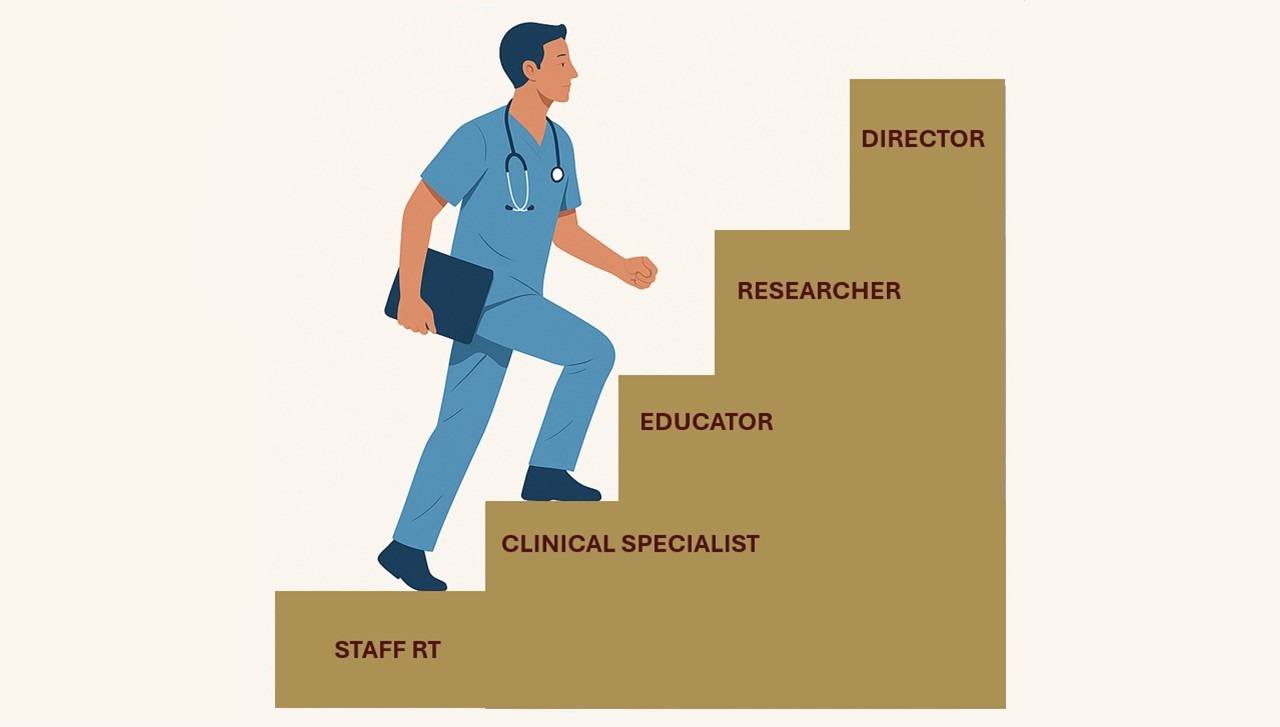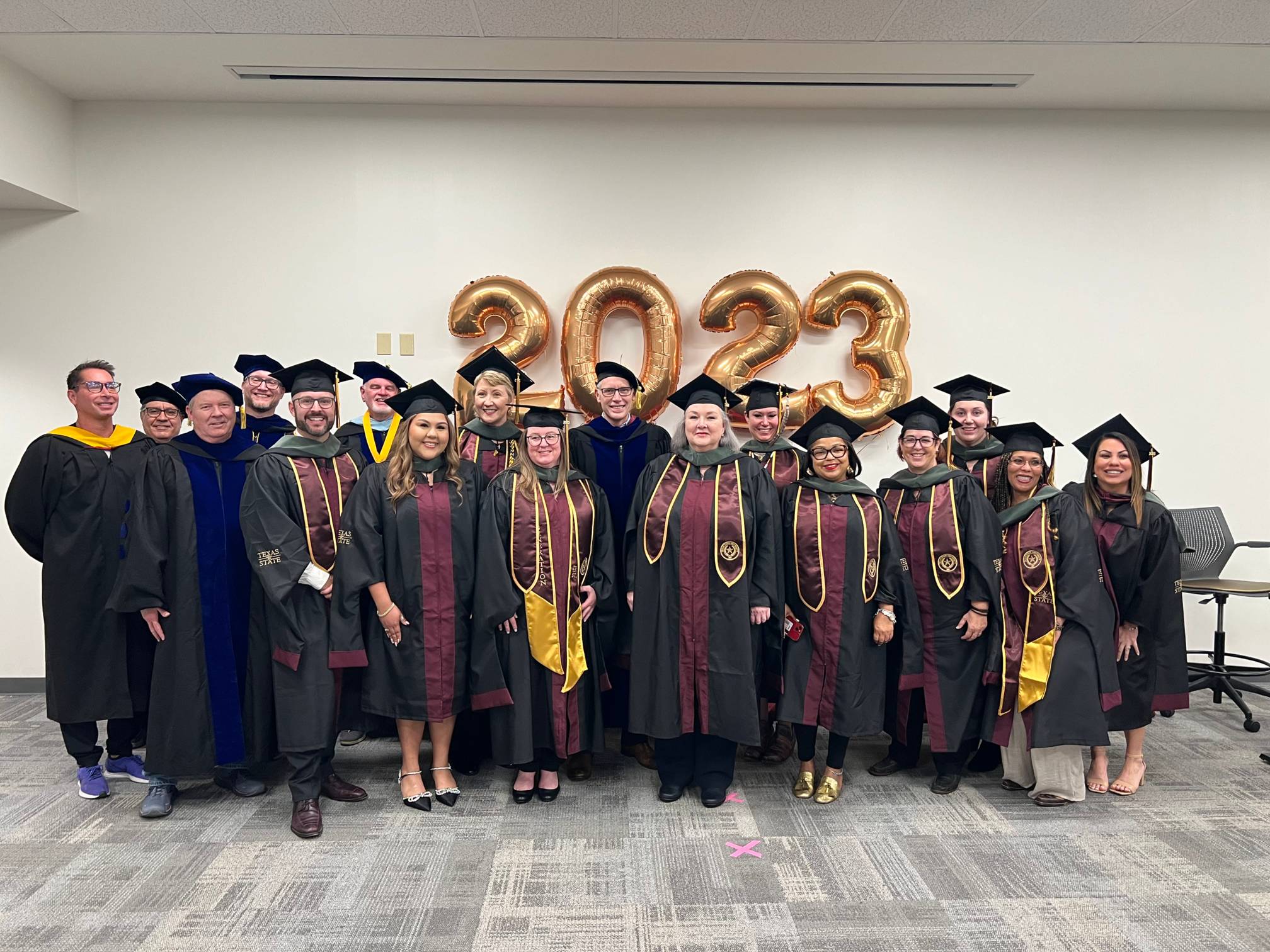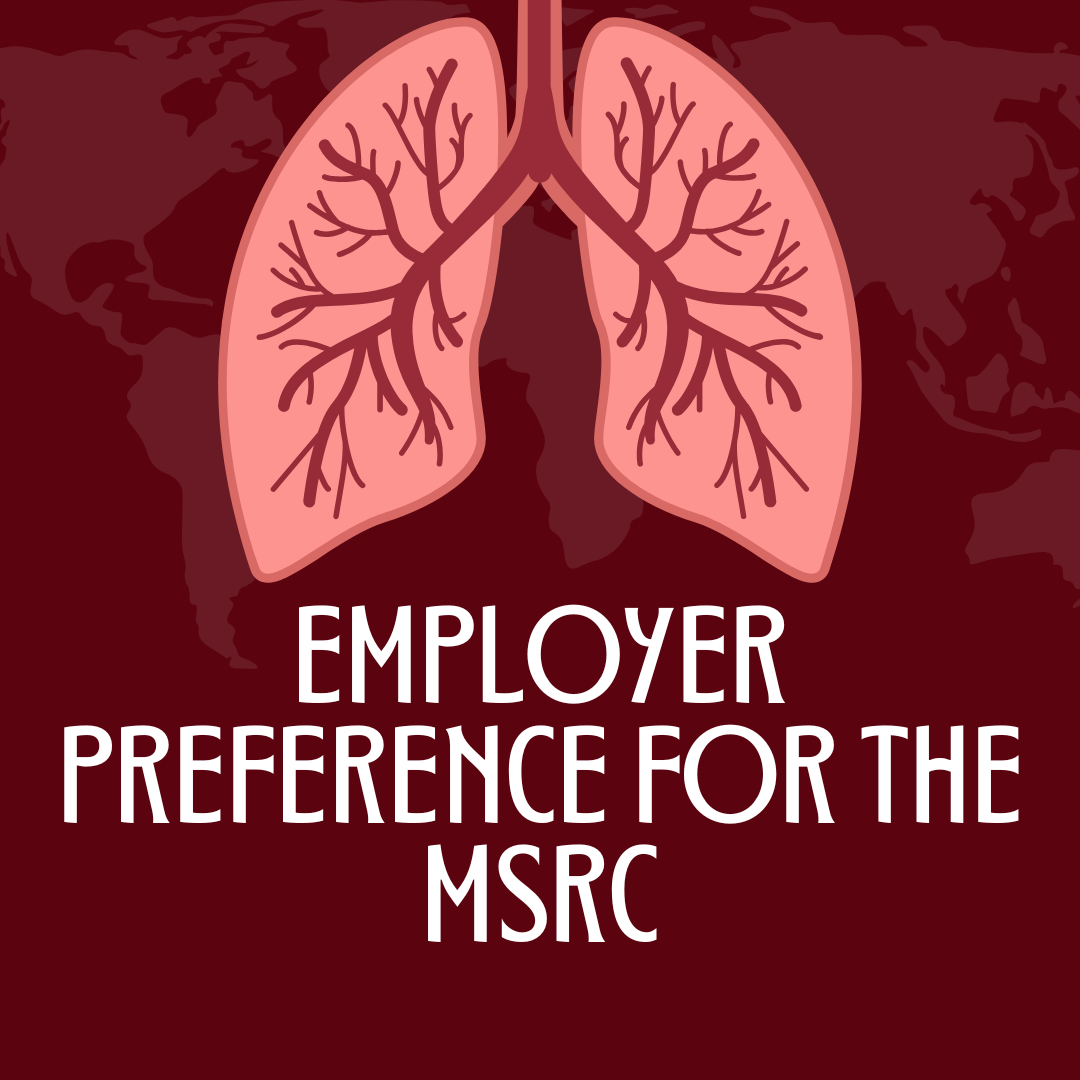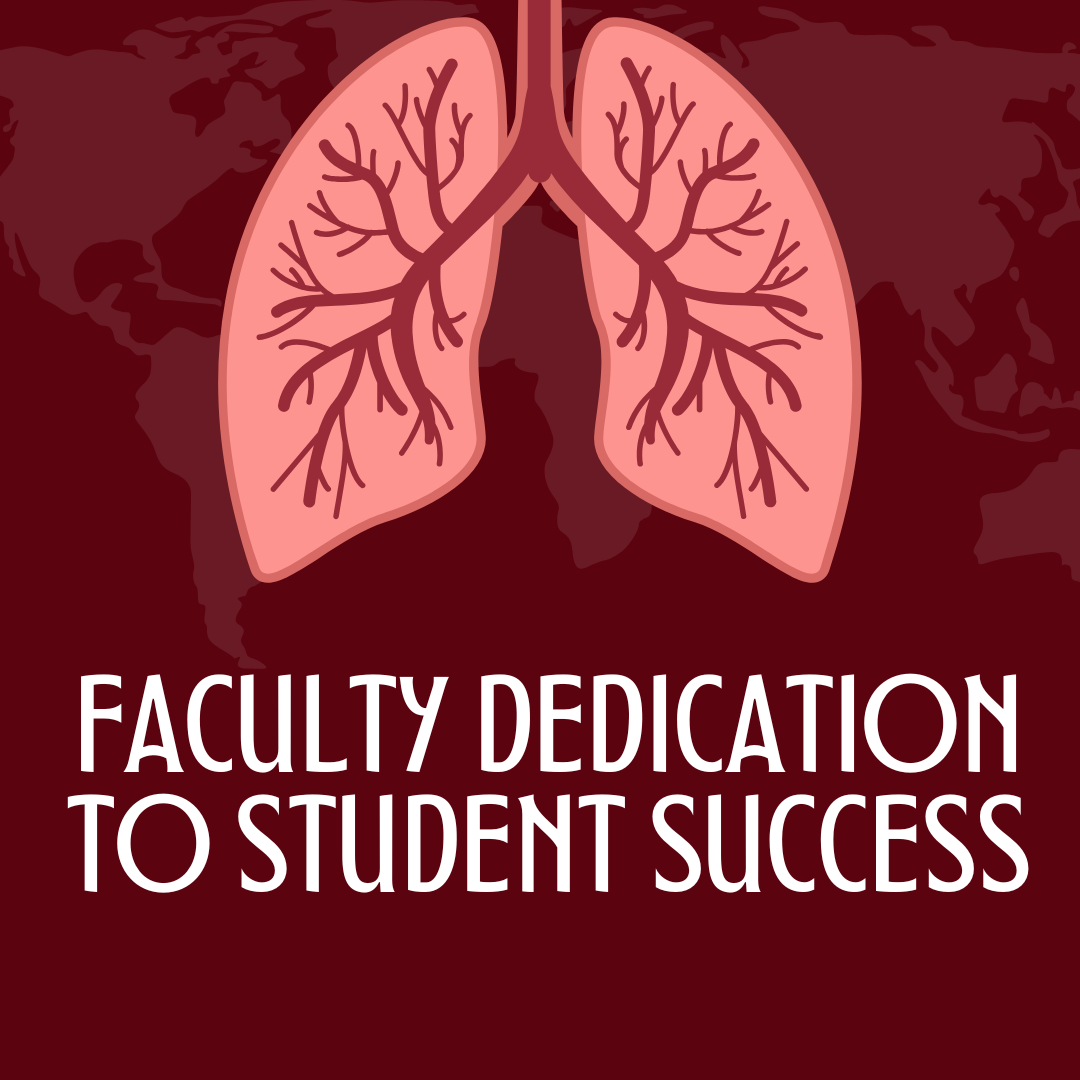The MSRC provides graduates with additional knowledge, skills, and attributes in leadership, management, education research and/or advanced clinical practice that will enable them to meet their current professional goals and prepare them for practice as advanced degree respiratory therapists.
The Master of Science in Respiratory Care (MSRC) program cultivates exceptional clinical professionals, managers, researchers, and educators to operate at the pinnacle of intellectual performance. This advanced degree program seamlessly integrates core graduate respiratory care courses with specialized concentration tracks, empowering individuals to achieve their professional aspirations. Embark on a journey to elevate your professional prowess with the Texas State MSRC program. We are committed to empowering individuals to reach their full potential, both professionally and personally. Enroll in the MSRC program and invest in a future brimming with opportunities.
Program Structure and Content
The MSRC is a 36-hour post-professional program composed of a 24-hour core curriculum and a 12-hour major concentration in one of the following: clinical specialist, leadership, or polysomnography. Minor option available. Accelerated 8-week courses. Four semesters to complete the degree.
Core Curriculum
• Cardiopulmonary Physiology
• CPG and Protocols
• Research Method & Design
• Patient Education
• Academic Leadership
• Diagnostics and Therapeutics
Leadership
• Economics and Financial Theory
• Healthcare Law
• Organizational Behavior and Theory
• Finance for Clinical Leaders
Clinical Specialist
• Advanced RC Practice
• Mechanical Ventilation
• RC Curriculum Development
• Sleep Fundamentals
Polysomnography
• Sleep Physiology
• Instrumentation
• Sleep Staging
• Diagnostics and Therapeutics
Why should you get your MSRC?

Why an MSRC?
Specialization
Specialize in critical care, neonatal or pediatric care, pulmonary rehabilitation, or sleep medicine. Become sought after expert in your chosen field
Career Advancement
Elevate your career to new heights and new opportunities within the respiratory therapy field
Refined Skills
Stay at the forefront of the latest research and technologies. Be the professional everyone turns to for the latest insights.
Boosted income
Watch your income grow as higher-paying roles in the RC field become available such as clinical specialists, management and teaching positions.

What can you do with an MSRC?
Anything you want to do! Here are a few examples:
Advanced Clinician | Faculty/Educator |
Clinical Specialist | Account Executive |
Medical Executive | Medical Liaison |
Provider Liaison | Clinical Supervisor |
Director/Manager | Research Coordinator |
Not a Texas Resident? No problem.
Students outside the State of Texas are charged a rate comparable to in-state tuition when enrolled in eligible 100% online programs. Click here to learn more.
Program Highlights
The Degree
- 36 Hours
- Online
- Accredited
- Full/Part-Time
Tracks
- Clinical Specialist
- Polysomnography
- Leadership
- Minor Option
Faculty
- Experienced
- Credentialed
- Researchers
- Speakers
Funding
- State Tuition
- Scholarships
- Grants
- Online Resources
What do past and present students say about the MSRC at Texas State?
Accreditation
Texas State University is accredited by the Southern Association of Colleges and Schools Commission on Colleges (SACSCOC) to award baccalaureate, masters, and doctoral degrees. Questions about the accreditation of Texas State University may be directed in writing to the Southern Association of Colleges and Schools Commission on Colleges at 1866 Southern Lane, Decatur, Georgia 30033-4097, by calling (404) 679-4500, or by using information available on SACSCOC's website (www.sacscoc.org).


